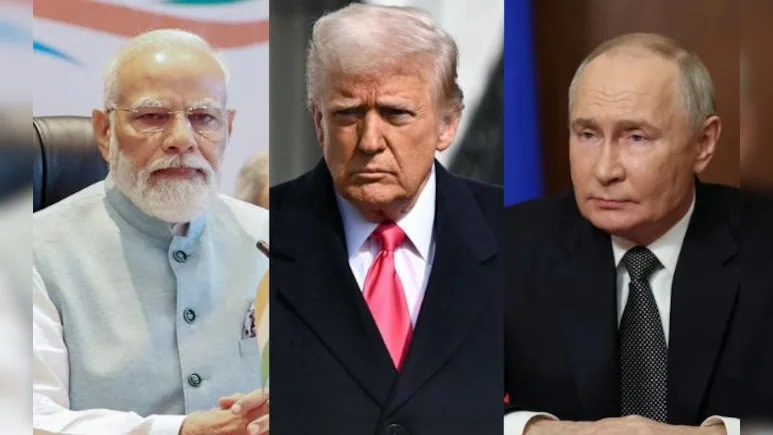A day after announcing 25% tariffs on imports from India, US President Donald Trump issued a blistering rebuke of India’s economic and defense ties with Russia. In a post on his Truth Social account, Trump remarked, “I don’t care what India does with Russia. They can take their dead economies down together, for all I care.”
Citing India’s high tariffs and limited trade engagement with the US, Trump stated, “We have done very little business with India. Their tariffs are too high—among the highest in the world.” He added that Russia and the US also engage in minimal trade, which he prefers to maintain.
Trump’s fiery remarks didn’t stop at New Delhi. He lashed out at Dmitry Medvedev, Russia’s former president and current Deputy Chairman of its Security Council, calling him a “failed former President” and warning him “to watch his words” after Medvedev claimed that Trump’s ultimatum-style diplomacy was pushing the world toward conflict.
This escalation came on the heels of Trump’s new trade penalties on India—not just for its tariff structures but also for its continued defense purchases from Russia. According to Trump, India has “always bought a vast majority of their military equipment from Russia” and continues to be “Russia’s largest energy buyer, along with China.” This, he argues, undermines Western efforts to isolate Moscow over the Ukraine conflict.
The US President’s comments add fuel to the ongoing diplomatic friction between Washington and New Delhi. While India has consistently defended its oil imports from Russia as being in its national interest, External Affairs Minister Dr. S. Jaishankar has criticized Western hypocrisy. He noted, “Europe’s problems are the world’s problems, but the world’s problems are not Europe’s problems.”
India Responds: Studying the Implications
India’s Ministry of Commerce and Industry responded diplomatically, stating it has “taken note” of the announcement and is analyzing the potential impact. The ministry emphasized that the government is committed to “protecting and promoting the welfare of our farmers, entrepreneurs, and MSMEs.”
The Indian government also reiterated its goal of finalizing a “fair, balanced and mutually beneficial” trade agreement with the US, similar to its recent Comprehensive Economic and Trade Agreement with the UK.
Trump Shifts Focus to Pakistan
In a strategic pivot, President Trump also announced a new oil partnership with Pakistan, stating, “We have just concluded a deal with the country of Pakistan to jointly develop their massive oil reserves.” According to his post, the US is in the process of selecting the oil company that will lead the venture.
This deal was made public just hours after the India tariff announcement and follows rising tensions between India and Pakistan after the recent Pahalgam terror attack. The timing of this announcement is being viewed by geopolitical observers as a deliberate signal to New Delhi.
Conclusion: A Strategic Shift or Provocation?
Trump’s series of announcements represent a potential shift in US strategic alliances in South Asia. By simultaneously penalizing India, criticizing its ties with Russia, and warming up to Pakistan, the US President appears to be reshaping American engagement in the region.
However, it remains to be seen how India will respond in concrete terms—especially as it balances its defense needs, energy security, and its complex foreign policy matrix in the midst of shifting global power dynamics.



